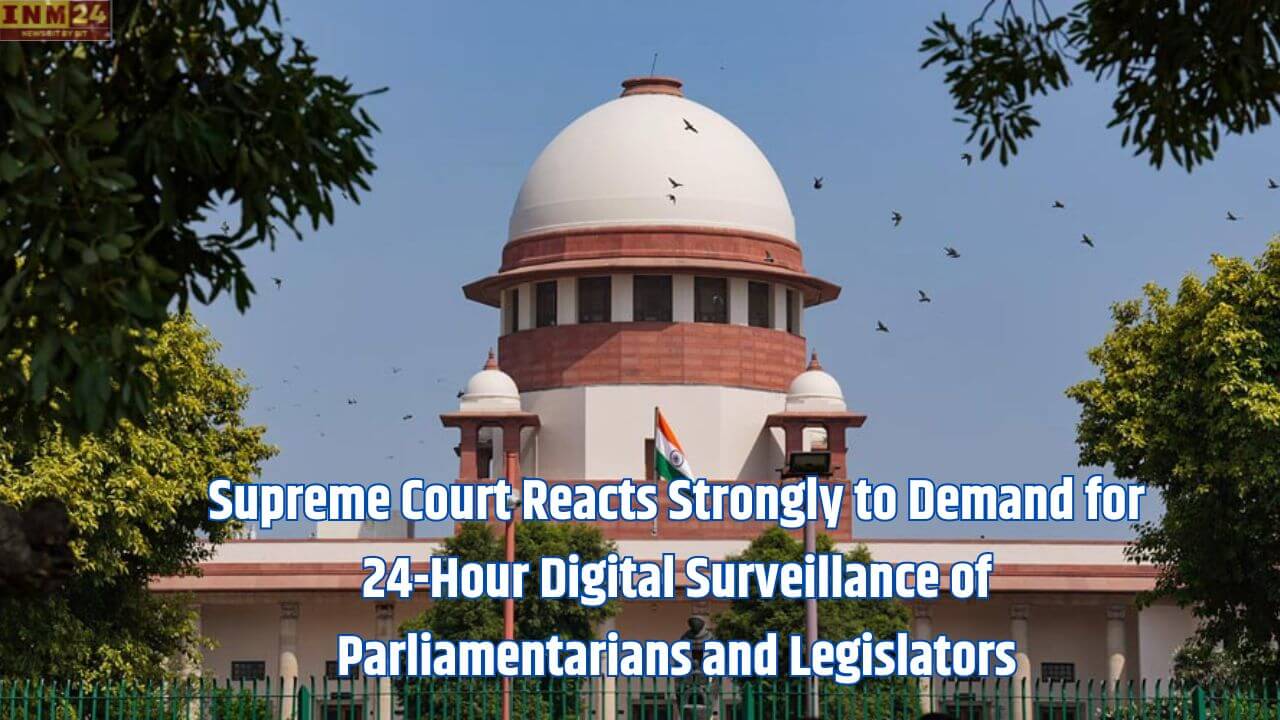In a recent development at the Supreme Court on March 1, a peculiar plea was filed, urging the court to enforce round-the-clock digital surveillance on Members of Parliament (MPs) and legislators. The court responded by sternly reprimanding the petitioner and questioning the feasibility and ethical implications of such a demand.
Background
The petition was filed by Surinder Nath Kundra in the Supreme Court, requesting the court to issue directions for 24-hour digital monitoring of the activities of MPs and legislators. The petitioner argued that such surveillance was necessary to ensure transparency and accountability in their actions.
Court’s Reaction
The bench comprising Chief Justice D.Y. Chandrachud, Justice J.P. Pardevwala, and Justice Manoj Mishra not only dismissed the petition but also strongly criticized the petitioner for the unusual demand. Chief Justice Chandrachud went on to question the petitioner, asking whether they were proposing to implant chips in the bodies of MPs and legislators to monitor their every move.
Right to Privacy Concerns
The Supreme Court, while rejecting the petition, referred to the right to privacy, emphasizing that MPs and legislators, like any other citizens, have a right to a private life. The court pointed out that such extensive surveillance would be justifiable only in the case of a proven criminal who might pose a threat to national security and could evade legal jurisdiction.
Court’s Warning
Chief Justice Chandrachud issued a stern warning to the petitioner, cautioning against filing such frivolous petitions in the future. The court stated that a penalty of ₹5 lakhs would be imposed if any similar petition is brought before them again.
Petitioner’s Argument
The petitioner had argued that MPs and legislators often conduct themselves like rulers, necessitating constant monitoring. However, the court dismissed this broad generalization, asserting that such allegations could not be applied uniformly to all elected representatives.
The Supreme Court’s strong reaction to the plea for 24-hour digital surveillance on MPs and legislators underscores the importance of respecting the right to privacy even for public figures. While transparency and accountability are crucial in a democracy, any measures infringing on the privacy rights of elected representatives must be carefully evaluated and justified within the bounds of the law. The court’s warning against filing such petitions without substantial grounds serves as a reminder of the responsibility associated with legal proceedings in the country.
